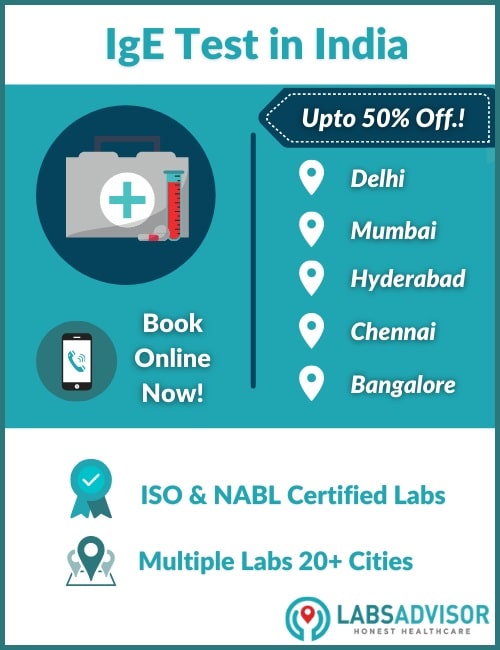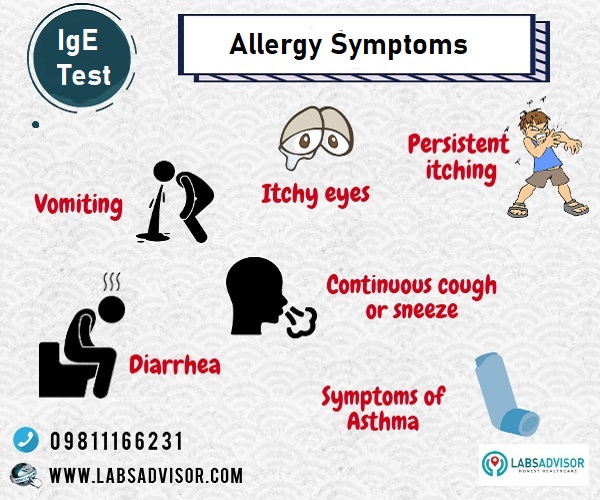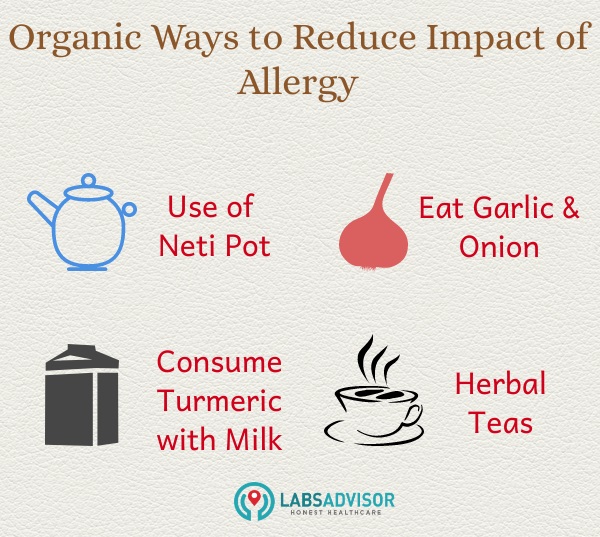
Immunoglobulin E is the full form of IgE. The IgE antibody is usually found only in a small amount in our blood. IgE antibody is usually related to the problems that are associated with allergic reactions.
Book this really important test at your local top-quality labs through us at up to 50% discount. The lowest IgE test cost is ₹290 only.
IgE Test Through LabsAdvisor
|
Book your IgE blood test online to avail the exclusive offers and cashback!
Here are the simple steps to book your appointment at a discounted price.
- Click on the link given in the below table according to your preferred city.
- Choose the most suitable lab for your IgE blood test.
- Select your preferred date and time for your appointment.
- Enter the patient details and click submit.
- Congratulations! You have booked an appointment at a discounted price.
Book online yourself at any time of the day or night by clicking on the appropriate link in the table below.
IgE Test Cost in India and Lab Details
We offer the IgE test in over 20 Indian cities. Click on the link of your city below to choose a lab and make an online booking for home collection at a suitable time.
| City for IgE Test Cost | Price Starting From |
| IgE Test Price in Delhi | ₹360 |
| IgE Test Price in Gurgaon | ₹290 |
| IgE Test Price in Noida | ₹290 |
| IgE Test Price in Mumbai | ₹600 |
| IgE Test Price in Pune | ₹600 |
| IgE Test Price in Chennai | ₹400 |
| IgE Test Price in Bangalore | ₹400 |
| IgE Test Price in Hyderabad | ₹400 |
| IgE Test Price in Other India Cities | ₹290 |
What is IgE?
Immunoglobulin E is the full form of IgE. The IgE is one of the five classes of antibodies (IgA, IgG, IgM, IgD, and IgE) produced by our immune system. The IgE antibody is usually found only in a small amount in our blood. IgE antibody is usually related to the problems that are associated with allergic reactions.
The higher level of IgE antibody in our blood may be a sign that our body is overreacting to allergens. This can cause allergic reactions. The high-level IgE is also found in various other conditions such as asthma, inflammatory disease, primary immunodeficiency, and parasitic infections.
The IgE test is used to measure the level of IgE in our body. It is also referred to as the total IgE test or serum IgE test.
Why is the Total IgE Test Done?
The total IgE test is normally done to screen and detect allergic diseases when the potential allergen is unknown. You may experience symptoms such as
- Persistent itching
- Sneezing
- Cough
- Itchy eyes
- Nausea
- Symptoms of Asthma (wheezing, breathlessness, tightness in the chest, etc)
- Vomiting
- Persistent diarrhea
- Difficulty in breathing
The serum IgE test is also done as a screening test if parasite infection is suspected.

How to Prepare for the IgE Test?
The serum IgE test does not require any special preparation. You can carry on your regular activities and have a normal diet before taking your IgE test.
How is IgE Test Done?
The procedure of the serum IgE test is the same as any other kind of blood test. A nurse will put a tight elastic band around your arm to get the veins to swell with blood. The skin will be cleaned sanitized with a disinfectant liquid before injecting the needle.
A needle will be slowly injected into the vein to draw the blood sample required for the test. After drawing enough blood sample the needle will be removed. You will be asked to put pressure on the needle site with a cotton ball to stop bleeding. Then a band-aid will be put on the needle site.
What is the risk involved in the test?
The total IgE test does not involve any potential side effects. You may feel slight discomfort and bruise when the needle is injected into your vein to draw blood.
It is also important to inform your doctor if you have any known bleeding disorders, as it may result in excess bleeding.
What do the IgE test results mean?
The high level of IgE in the blood means that the person has one or more allergies. The level of IgE increases when a person is exposed to an allergic substance. The total IgE level may be persistently high if the substance that a person allergic to is constantly around.
The increased level of IgE indicates that a person is allergic, but does not identify the substance that a person is allergic to. The total IgE level may also increase if there is a presence of parasitic infection.
If the results are normal, then it indicates that a person has less likely or no allergies. But it does not mean that a person has no allergies. The IgE level may drop if the person is not exposed to the allergic substance at the time of the test. So it cannot be completely ruled out that a person does not have allergic reactions.
Sometimes, our immune system does not produce enough immunoglobulins. In this case, a person’s allergic reaction does not reflect in the total IgE test results.
How to Prevent Allergies?
There are no preventions for allergies. But the following are a few simple and organic ways in which we can reduce the impact of allergies in our body.
- Neti Pot: This little device has been used in India for centuries to improve breathing. Fill up a neti pot with lukewarm water and add some nonionized salt to it. Put this water in one half of the nose and tilt your head a little. A purpose is to put water from neti pot in one side of the nose and get it out from the other. While this will feel weird and difficult initially, very soon you will get used to it and enjoy the process. The technique is very helpful in clearing the mucus and helps alleviate difficulty in breathing.
- Eat onion and garlic: For some this may not sound appetizing but both these foods contain an antioxidant called quercetin. This antioxidant reduces the release of histamine in the body which causes various symptoms associated with allergies. Ideally, one should start consuming the above-mentioned foods around 4 weeks before the onset of allergy season.
- Turmeric with milk: Tumeric has natural anti-inflammatory properties which brings relief to people suffering from weakness due to allergies. Take a glass of milk with turmeric before you go to bed. You will also sleep well.
- Herbal Teas: Herbal teas like green tea and chamomile have plenty of antioxidants. They are in any case helpful in relieving stress and increasing the immunity of the body. For people suffering from allergies, they give additional relief.

Interesting topics you may search for with LabsAdvisor:
- IgM Test Cost in India
- Anti TPO Test Cost in India
- D Dimer Test Cost in India
- Fibroscan Test Cost in India






